How I got my sex drive back after having prostate cancer
Haydn Reid had his prostate removed after discovering cancer. He and his partner have opened up on their sex life in the hope it will help others.
Sexual Health
Don't miss out on the headlines from Sexual Health. Followed categories will be added to My News.
Straight-talking “country boy” Haydn Reid is very grateful his sex drive is pretty much back on track after having his prostate removed due to the discovery of cancer three years ago.
“I would say I’m 95 per cent back to normal with it,” the father-of-two said.
But it is not as simple as that. Not by a long shot.
Haydn’s father and uncle both had prostate cancer.
His father died last September from unrelated causes, 15 years after having his prostate removed aged 65.
His uncle is “travelling fine” eight years after surgery.
“Our family doctor told me that because of my family history I should get my PSA (blood test to detect possible prostate cancer) from age 35 to see how I was tracking,” Haydn said.
“So I had it done every 12 months from 35.”
But when he was aged just 39 years old his results came back elevated.
He chose to have a biopsy – carried out by Associate Professor Nick Brook – which found he had low-grade prostate cancer.
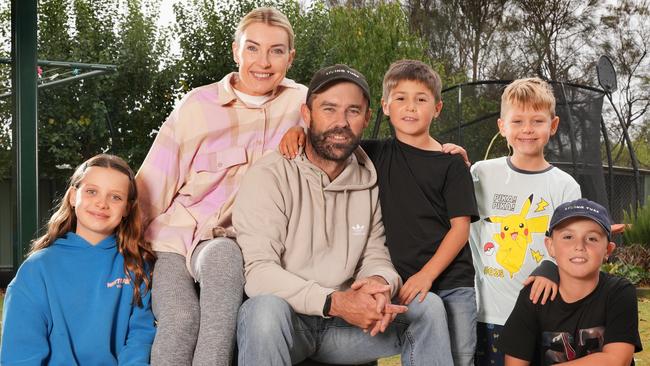
Haydn, from Meadows, 50km south of Adelaide, did not muck around.
“I made the decision on the spot to have a robotic prostatectomy,” he said.
“There was the option of tracking it but it was like having a ticking time bomb inside me. I just felt it was better out than in.”
The minimally invasive robotic assisted surgery to remove the prostate is done through keyhole incisions.
Haydn – who has two sons Hunter, now aged nine and Harvey, seven - had no symptoms which might have alerted him to the disease.
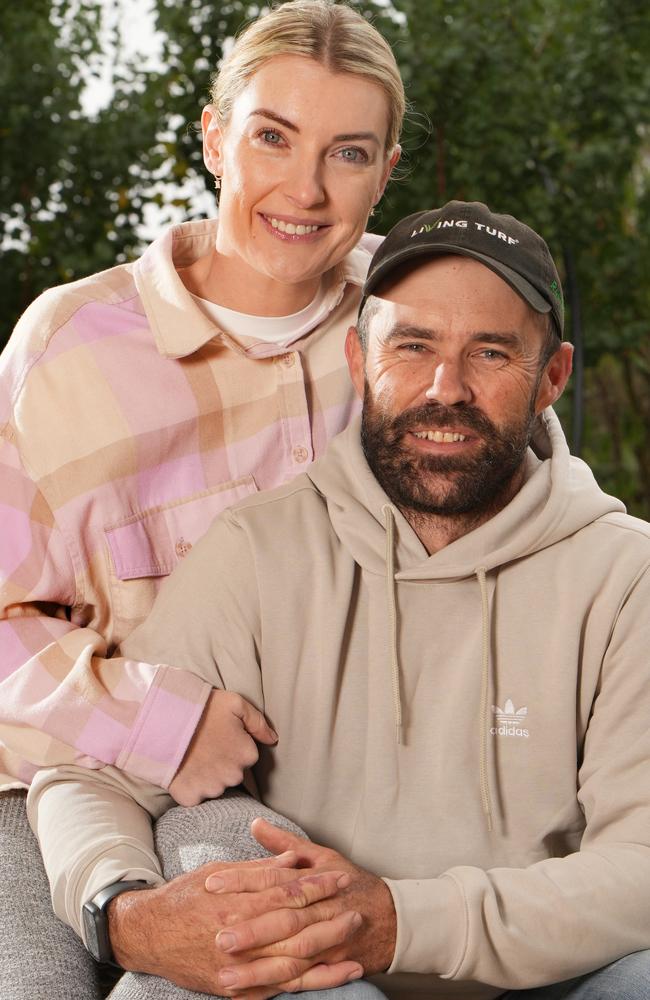
He’d been playing sports like cricket or football, working outdoor jobs and felt fit and healthy.
“I’d always thought of it as an old person’s cancer so it really opened my eyes,” he said.
“I rang my family doctor to thank him because without his advice to have regular screening it could have been another 10 years before I had a PSA test.”
Haydn was well aware erectile dysfunction is a potential side effect of prostate surgery due to damage to nerves and blood vessels.
“I was really worried about my future quality of life,” Haydn recalled.
“A very important part of life is intimacy with your partner.
“That was the hardest thing to deal with.”
He was also dealing with a divorce at the time, adding to the strain.
He is now with partner Debra Rognli, 40, and three years after surgery said: “My sex life has resumed”.
“It is probably the luck of the draw, I had complete nerve-sparing surgery, and I would say
I’m 95 per cent back to normal with it.”
Haydn said there was still a mental process involved with sex.
He initially tried medications and injections, and noted stressing about getting an erection did little to help.
“I’m not on any medications any more, not Viagra or anything like that, and now everything works,” he said.
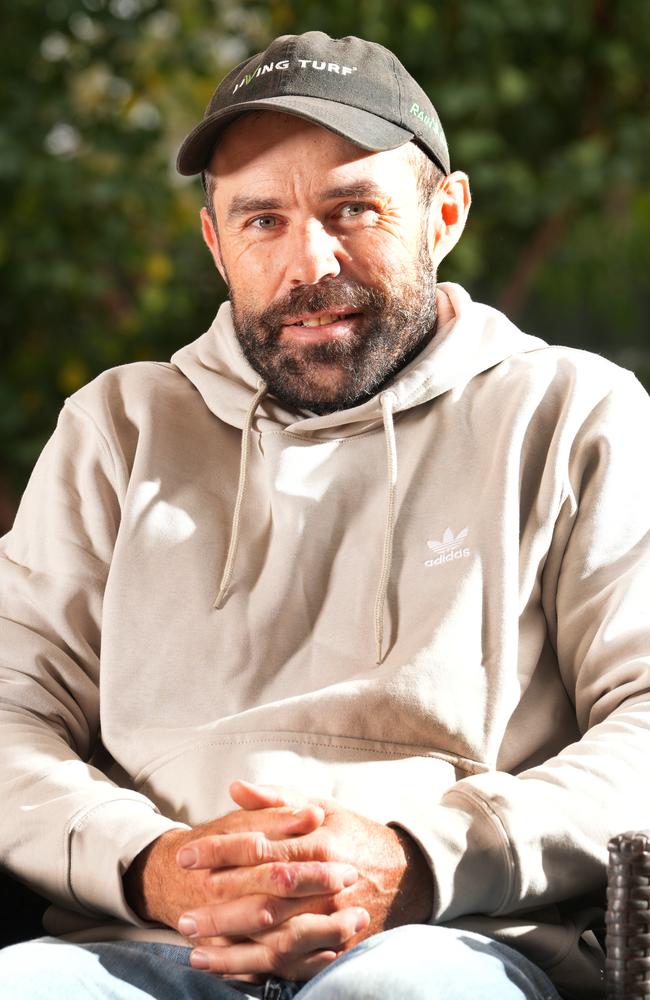
“Is it different? Yes. You need arousal to get everything to wake up. You don’t just wake up with the old morning wood.”
Haydn also noted that while the intimacy is good, it was a dry orgasm.
“The troops go through the prostate and once the prostate is gone, they don’t march through,” he said.
“But you get the sensation of an ejaculation.
“I have been so lucky that I have recovered very well. I am back playing cricket and football and living life the same as prior to three years ago.
“But it does change your sex life to a degree.
“Exercises to strengthen the core and pelvic floor muscles have been beneficial but it is a bit of trial and error to get the blood flow going down there.
“I am fortunate I have a partner who is very understanding.”
Debra, a nurse, said she was grateful they could have sex after what Haydn had been through.
“We are just lucky Haydn is still able to be intimate,” she said.
“I try not to be too greedy because it could have been non-existent in our relationship.
“Duration sometimes may be a little short but that is so much better than the alternative.
“So I am staying firmly on the side of being grateful for the intimacy we have.”
Prostate cancer is the most commonly diagnosed cancer in Australian men with an estimated 25,500 new cases in 2023, with around one in seven eventually dying of the cancer.
New draft guidelines for PSA screening are out for consultation and recommend offering baseline tests to “interested” men starting at age 40, with two-yearly testing for those aged 50-69.
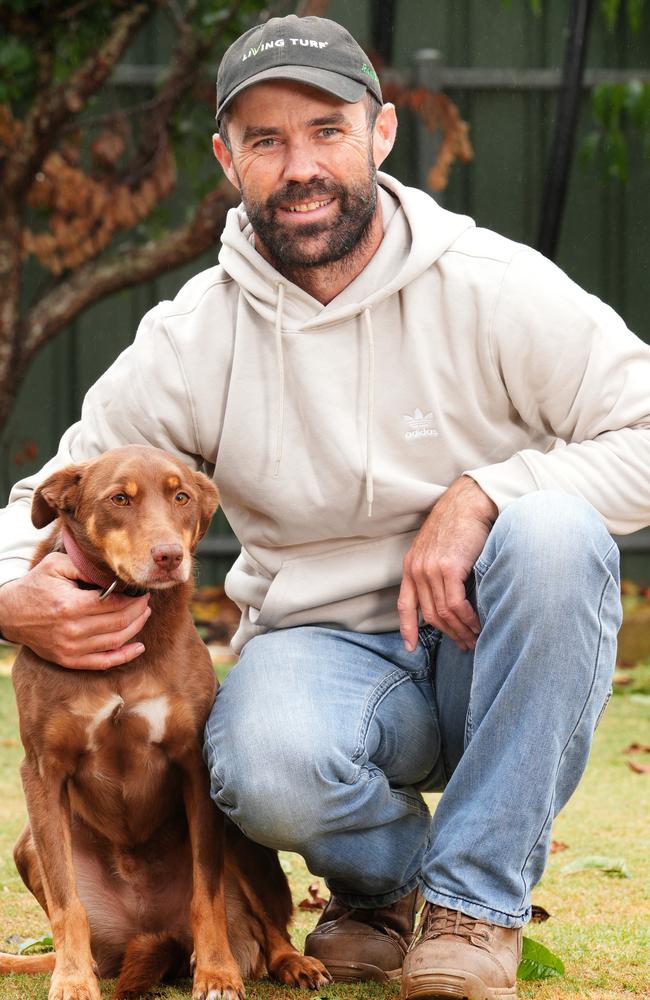
They also recommend testing males aged over 70 based on clinical assessment, including life expectancy, and earlier testing for males at higher risk.
Haydn has a clear message: “To all blokes out there, get screened, it is a simple blood test, and if you catch it early enough it doesn’t affect your quality of life — and it may save your life.”
What does prostate cancer mean for a man’s sex life?
Adelaide Urologist Associate Professor Nick Brook stressed the importance of PSA screening to “save lives and reduce suffering from prostate cancer.”
“Men should consider screening because early stage prostate cancer is highly treatable, the earlier prostate cancer is detected, the better,” he said.
He said that prostate cancer treatment – surgery or radiation – did not have to mean the end of a man’s sex life due to erectile dysfunction.
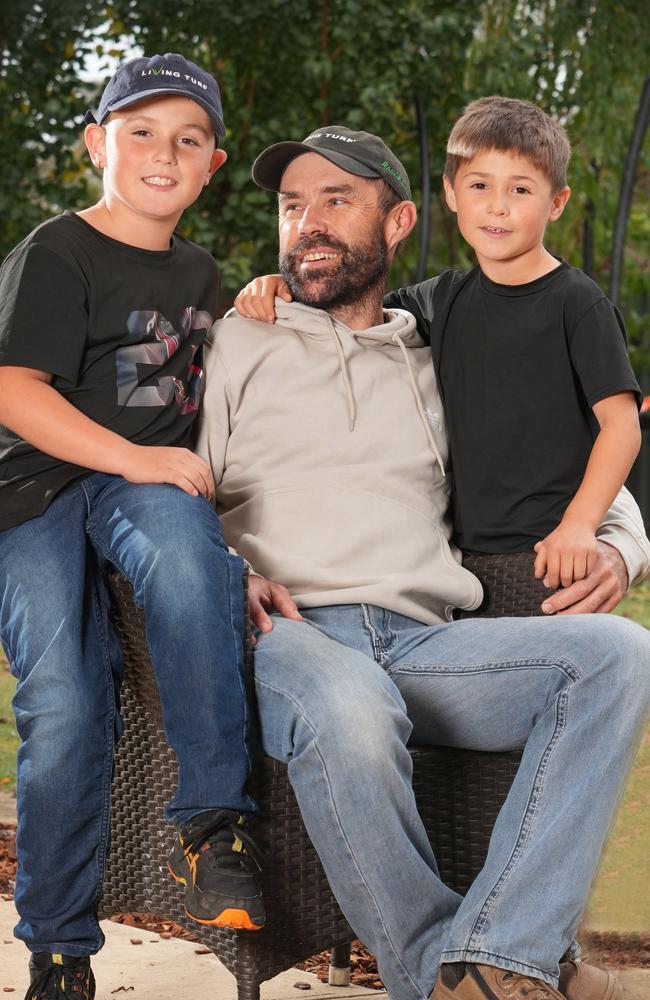
But he said all treatments could have a negative impact.
“This is because the nerves to the penis which activate erections are very closely associated with the outer layers of the prostate,” he said.
“There will be a degree of collateral damage to these nerves.
“The biggest indicator of good erectile function after surgery is a man’s pre-treatment erectile function.
“Even if erections are affected, this does not mean the end of a man’s sex life because recovery can occur slowly over time and there are a range of treatment options for men which can help with erections.
“Also, couples can explore other aspects of intimacy.”
Prof Brook said there was no strong evidence that any particular pelvic exercise could improve sexual function.

He encouraged aerobic and weight-bearing exercise for general health and noted the fitter a man was before surgery, then the more likely he would be to have a good outcome.
As for other treatments to help erections, he said: “There are a range of tablet treatments that we can use. We generally start men on a regular low dose tablet for three months which can help with rehabilitation of erectile function over time. Then we have higher doses of medications.
“There’s also injection treatment if men want to explore this and this can be a very effective way to treat erectile dysfunction when the nerves have been damaged by treatment.
“There’s increasing evidence for low-intensity shockwave treatment, which is a simple clinic-based treatment that can help with rehabilitation of erectile dysfunction in some, but not all men.
“Finally, there is a device called an inflatable penile prosthesis, which can be used in men who want to regain sexual function if other avenues have not worked for them.”





